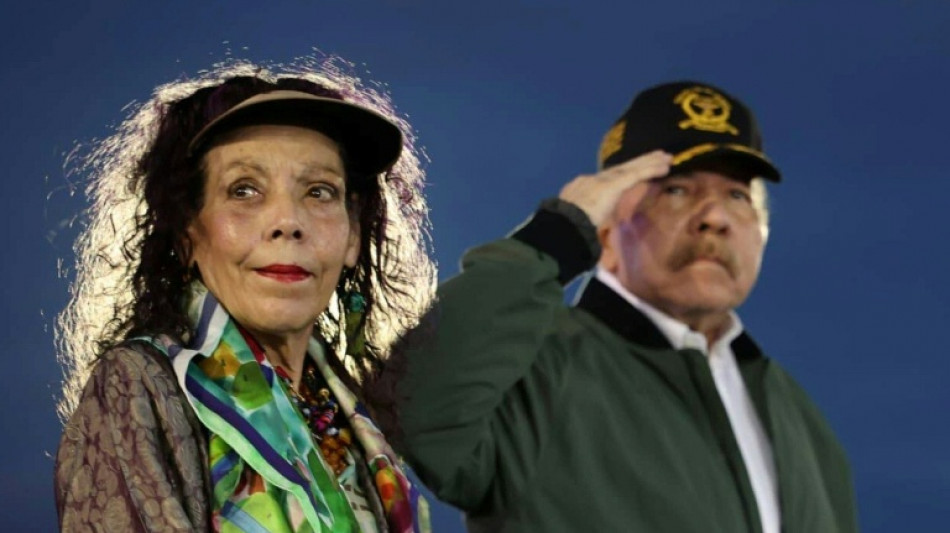
RBGPF
0.1000

A wave of arrests and the death of jailed opposition figures has signalled a new "era of repression" in Nicaragua, observers say, as powerful co-president Rosario Murillo prepares to take power from her ailing husband, Daniel Ortega.
Ortega, who turns 80 on November 11, is increasingly delegating tasks to his septuagenarian wife, Murillo, who has a reputation for ruthlessness and esoteric beliefs.
Exiles and human rights activists see a series of recent authoritarian actions as evidence that transition preparations are quickening in pace.
- Death of detainees -
Authorities in Managua never publicly acknowledged the jailing of opposition figure Mauricio Alonso, who was believed to have been picked up in mid-July.
Little was known about his safety until August 25, when Washington announced and denounced his death in custody.
Managua also kept the arrest of lawyer Carlos Cardenas quiet.
He was detained on August 15, and his body was handed over to his family two weeks later.
"In one week, the bodies of two people who had disappeared were delivered... this is a new stage bearing Murillo's stamp," Arturo McFields, former Nicaraguan ambassador to the United States, told AFP.
For Juan Pappier, assistant Americas director at Human Rights Watch, this new repressive era, in part, "is tied to Murillo's effort to prepare for the moment of succession."
"There is a clear and evident effort by Rosario Murillo to be ready for the day Ortega's health deteriorates or he passes away," Pappier told AFP.
- Internal purges -
One-time allies of Ortega and leading figures in the Sandinista revolutionary movement have been detained as well.
Commanders Bayardo Arce, Alvaro Baltodano, Henry Ruiz, and Ortega's security chief, Marcos Acuna, are among those arrested in recent months.
"The Murillo era" is characterized by "the dismissal of historical officials or those who had sworn loyalty to Ortega," McFields said.
Other lesser-known militants are also imprisoned or under house arrest, including the son of Carlos Fonseca, founder of the Sandinista Front.
Exiled academic Uriel Pineda told AFP that "repression has focused on historical allies of the regime to prevent any internal opposition strategy from taking shape."
"They are attempting to clean house -- deciding who or not to keep within the close circle of power," says Santos Mendez, coordinator of the Nicaraguan community in Guatemala.
- Declining health -
In recent public appearances, Ortega has been seen struggling to walk and looking pale.
According to exiled physician Richard Saenz, who used to treat the presidential family, he suffers from lupus and kidney failure.
In May, his absence from the celebrations of the birth of national hero Augusto Sandino sparked rumors.
"In Ortega's most recent public appearances his age has been notable, naturally, and his condition has visibly deteriorated," Pineda said.
- Military command -
Upon becoming co-president, Murillo assumed command of the military. This week, during an Army anniversary event, she for the first time handed over insignia to promoted officers.
At this ceremony, Ortega sought to justify his wife's rise: "Women have joined all fields" of public life he said.
The transition "may have accelerated because this month marks precisely one year since the death of Humberto Ortega," Daniel's brother and a former Army commander, said Gonzalo Carrion, an exiled human rights activist.
Humberto Ortega had been placed under house arrest after declaring, in May 2024, that he thought it would be "very difficult" for Murillo and their children to maintain power if the president were to die.
All of the couple's children hold positions in the government or state-owned companies.
The most prominent is Laureano, responsible for ties with Russia and China, two key allies.
"Unfortunately, Nicaragua is the Western Hemisphere's version of North Korea," says Pappier.
V.Sedlak--TPP